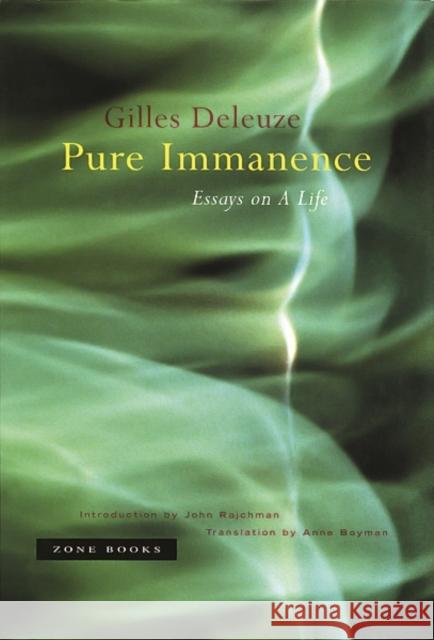Pure Immanence: Essays on A Life » książka
Pure Immanence: Essays on A Life
ISBN-13: 9781890951252 / Angielski / Miękka / 2005 / 104 str.
The essays in this book present a complex theme at the heart of the philosophy of Gilles Deleuze, what in his last writing he called simply -a life.- They capture a problem that runs throughout his work--his long search for a new and superior empiricism. Announced in his first book, on David Hume, then taking off with his early studies of Nietzsche and Bergson, the problem of an -empiricist conversion- became central to Deleuze's work, in particular to his aesthetics and his conception of the art of cinema. In the new regime of communication and information-machines with which he thought we are confronted today, he came to believe that such a conversion, such an empiricism, such a new art and will-to-art, was what we need most. The last, seemingly minor question of -a life- is thus inseparable from Deleuze's striking image of philosophy not as a wisdom we already possess, but as a pure immanence of what is yet to come. Perhaps the full exploitation of that image, from one of the most original trajectories in contemporary philosophy, is also yet to come.











